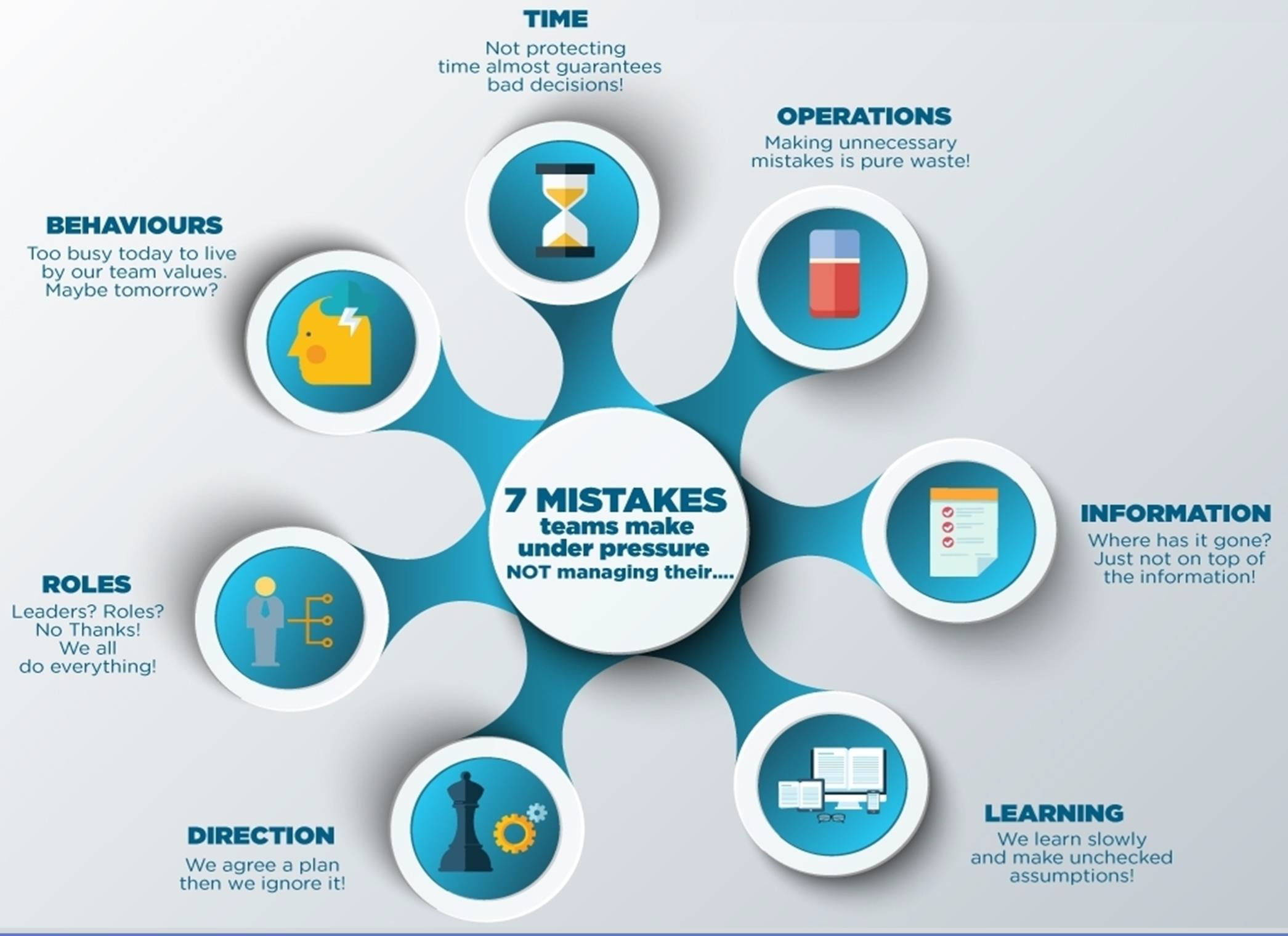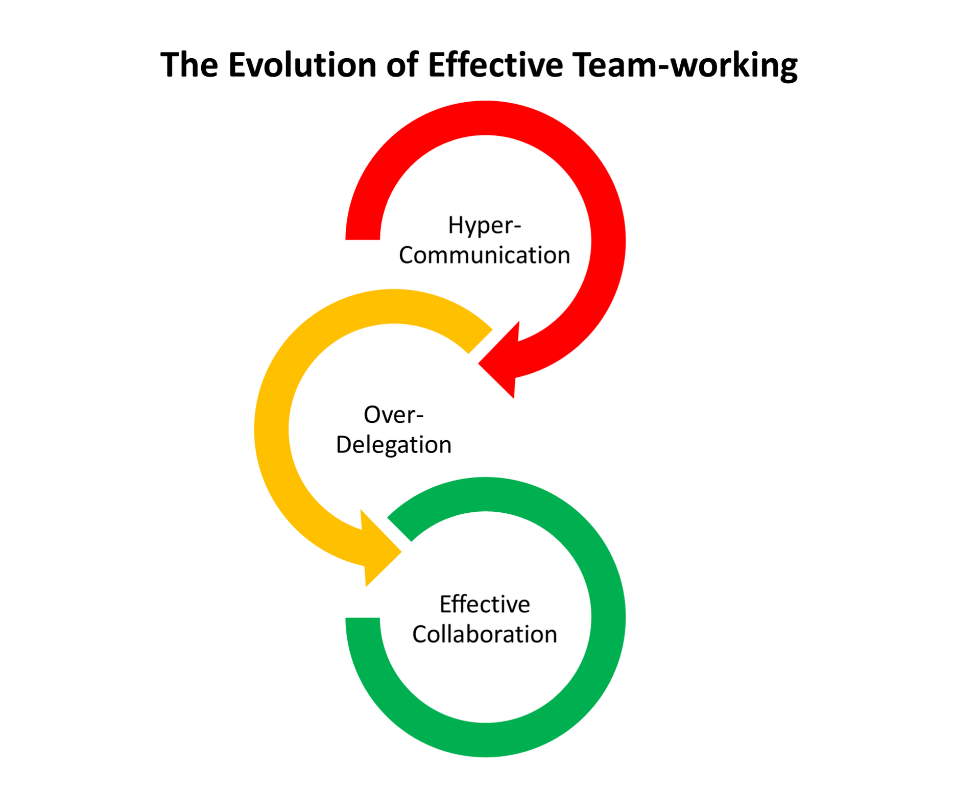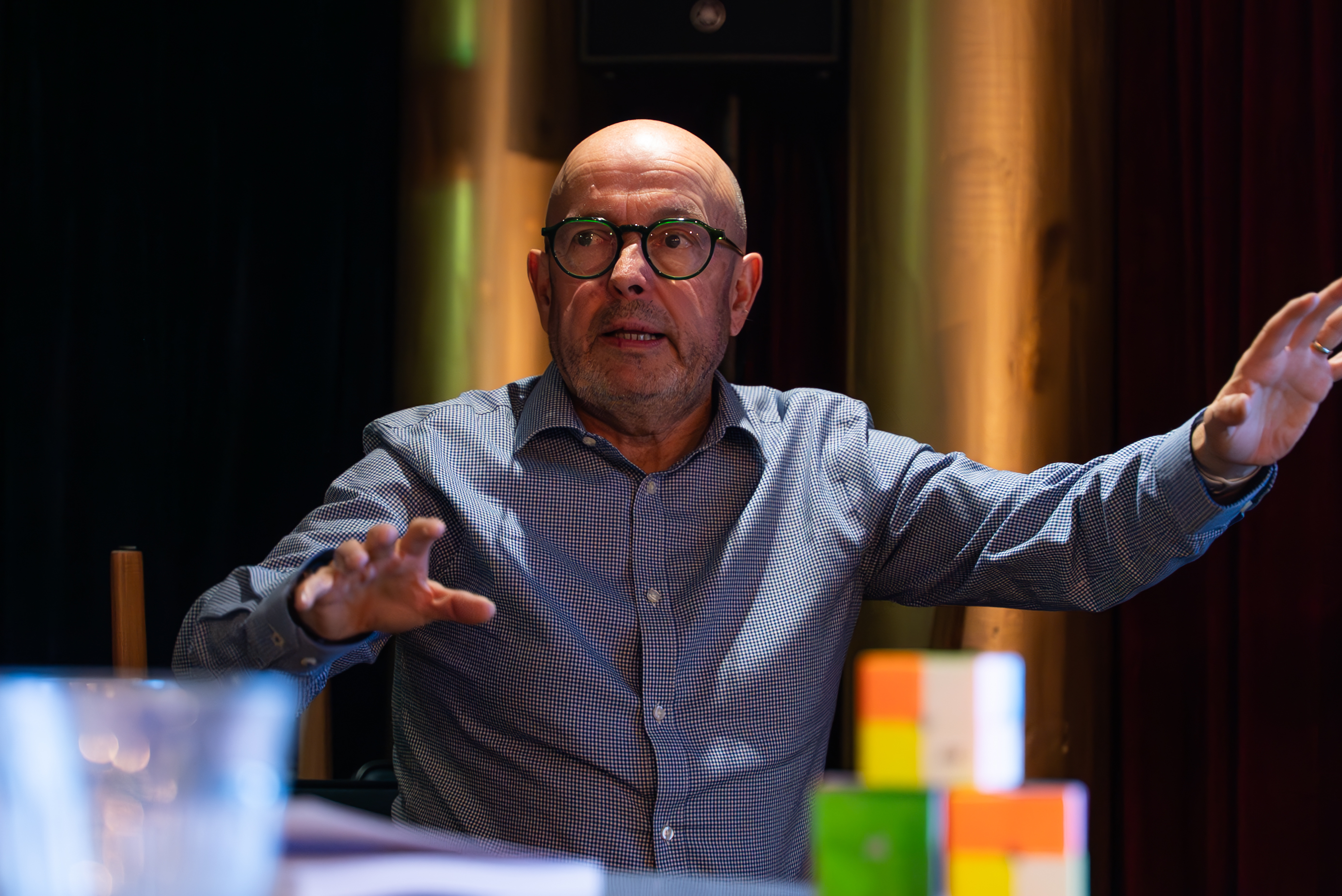White paper - How to create a high performing team quickly
By Ken Thompson, May 30, 2025 Last updated Jun 12, 2025
Summary
Sadly, you cannot create High Performing Teams in a day or afternoon or even over lunch. However, if you are put in the position where you, as a leader, simply must get the very best out of a group of your colleagues in very short timescales you can fast track them towards more effective team-working using 3 simple ingredients:
- Mechanisms such as competitive business simulation games or other short team challenges.
- Briefing for the teams on these challenges with specific deadlines and goals but without any instruction about how they are to behave other than that “they are a team”.
- Facilitated team self-analysis sessions at the end of each round or chunk of work in the challenges to let teams review what kind of collaboration they are employing and how they might improve it.
Contents
- Introduction
- Step 1: Create a team ‘game plan’
- Step 2: Stress test the team
- Step 3: Reflect and improve
- Step 4: Execute and review
- Conclusions
Introduction
Can you create a High Performing Teams in a day or afternoon or even over lunch? Of course not! However, if you are put in the position where you, as a leader, must get the very best out of a group of colleagues in very short timescales what can you do?
Step 1: create a team ‘game plan’
Below is my 7-point checklist which teams can use to produce a team game plan (1–2 pages maximum):
- Roles
How will we divide up the team responsibilities? - Agreements (ground rules)
How will we deal with each other as colleagues and team members? - Processes / practices
What are the 2–3 most important team processes / practices will we put in place and follow? - Priorities
How will we decide what is most important, particularly in dilemmas or under pressure? - Organisational values
What values are the most important to us as a team? - Results
What specific results must we achieve as our minimum team performance level? - Targets
What is our ‘stretch’ target, our ambition to exceed our minimum performance level?
The first letter of each element spells ‘R.A.P.P.O.R.T.’ which is a useful mnemonic for a team game plan. This is apt as ‘rapport’ can be defined as ‘a close and harmonious relationship in which the groups concerned understand each other’s feelings or ideas and communicate well’ according to the Oxford Dictionary.
Step 2: stress test the team
Do some short team-based activity as a team and try to follow your team game plan. You need to set aside at least 1 hour but 3 hours is better. If you have 3 hours, you can play a team-based business simulation or even some off-site activity. If you only have 1 hour you can still have a team problem-solving brainstorming meeting on a practical topic with which everyone is already familiar.
If you only have 1 hour
You could give the team an "on paper" challenge with a short but unfolding scenario which they have to respond to as a team under considerable time pressure. These can be very effective and require minimal technology – briefings and updates on paper and/or on PowerPoint projected on a large screen.
If you have 1–2 hours
You could consider a simple off-the-shelf team-based business simulation game such as Compete. For example, in this simulation you form 4 sub-teams for a scenario which requires collaboration and well as competition between them. Compete is a business strategy simulation focused on commercial competition. Both these simulations only require a single computer accessing the internet so require minimal setup.
If you have 3–4 hours or more
You might consider a more complex business simulation game such as the Acumen business acumen simulation. In Acumen as well as learning about business acumen the teams will also learn that they must also collaborate with each other if they are to achieve the simulation objectives which are not fully revealed until the simulation is well underway.
Step 3: reflect and improve
At the end of this team activity, team members should take at least 30 minutes to discuss and reflect on a small number of key questions typically:
- How well are we working as a team – what could we improve?
- What would we do differently if we did the activity again?
- How closely are we following our team game plan – does this need to be revised?
If you have 2–3 hours, then you can conduct this review more than once as this allows the team to see visible improvements quickly. Another very useful device is to have the teams self-assess against the ‘7 mistakes teams make under pressure’ (Figure A).
The ‘7 mistakes’ have been gathered over many years and represent the most common mistakes teams make participating in team-based business simulations.

Step 4: execute and review
Now you need to direct the team to the job in hand with the specific extra directive of ‘Follow your game plan!’ In addition, you must build in a regular (e.g. weekly) review cycle where you repeat the self-reflection / improvement from step 3.
The evolution of team working
If you observe newly formed and existing teams playing business simulations and other intensive challenges, you can gain some important insights into how team-working ‘evolves’. This knowledge can help you accelerate the evolution of effective team working and collaboration in your own organisational teams.
On the road to effective team collaboration there seems to be two intermediate phases of 'naïve collaboration' which teams often seem to go through – hyper-communication and over-delegation.
Phase 1: hyper-communication
In this phase, almost every team member is involved in almost every team conversation. It is very democratic and feels good but the problem is that it just takes forever. A team operating like this will not hit its deadlines.
An organisational team meeting which conducts its operational meetings like this will not get through its agenda. In my experience teams usually start here on their journey towards effective collaboration. Teams in this phase genuinely believe that they are collaborating well UNTIL they suddenly discover that working like this is just not practical as it simply takes too long!
When teams have tried ‘hyper-communication’ they often over-correct and move to the next phase of naive collaboration: ‘over-delegation’.
Phase 2: over-delegation
In this phase, the team quickly agree that they need to work faster and more efficiently. To achieve this, they wisely decide that they need some roles and division of labour but they 'over-delegate'. By this I mean they give out jobs to the different members and sub-teams but do not support this with sufficient communications to ensure they all stay on the same page.
Like the first phase, hyper-communication, teams think they have fixed their collaboration and they feel they are being very efficient UNTIL they discover, typically near the end of the round, that they are no longer all on the same page and that the team members have been working to different assumptions and priorities which invalidates much of their good work.
Phase 3: effective collaboration
Once teams have experienced both these naïve forms of collaboration (hyper-communication and over-delegation) they are well placed to find a middle ground with represents effective collaboration.
As with over-delegation they allocate roles but this time they also ensure that this is supported by on-going communications particularly around task objectives and early review of provisional findings / decisions before they become finalised.

Conclusions
From these insights, many teams find it very difficult to move directly into effective collaboration without first experiencing and learning from both hyper-communication and over-delegation.
I can’t prove it but feel strongly that it may also be the case that many organisational teams simply flip-flop between the two naïve collaboration phases of hyper-communication and over-delegation without ever making the break-through into effective collaboration ... perhaps all the time believing, they are already doing it!
Therefore, to fast track effective team-working you need 3 simple ingredients:
- Mechanisms such as competitive business simulation games or other short team challenges.
- Briefing for the teams on these challenges with specific deadlines and goals but without any instruction about how they are to behave other than that “they are a team”.
- Facilitated team self-analysis sessions at the end of each round or chunk of work in the challenges to let teams review what kind of collaboration they are employing and how they might improve it.
If you carefully and skilfully work with these 3 ingredients, you can help teams in your organisation develop effective team-working and collaboration skills in a much faster timescale than might be possible using other methods.
